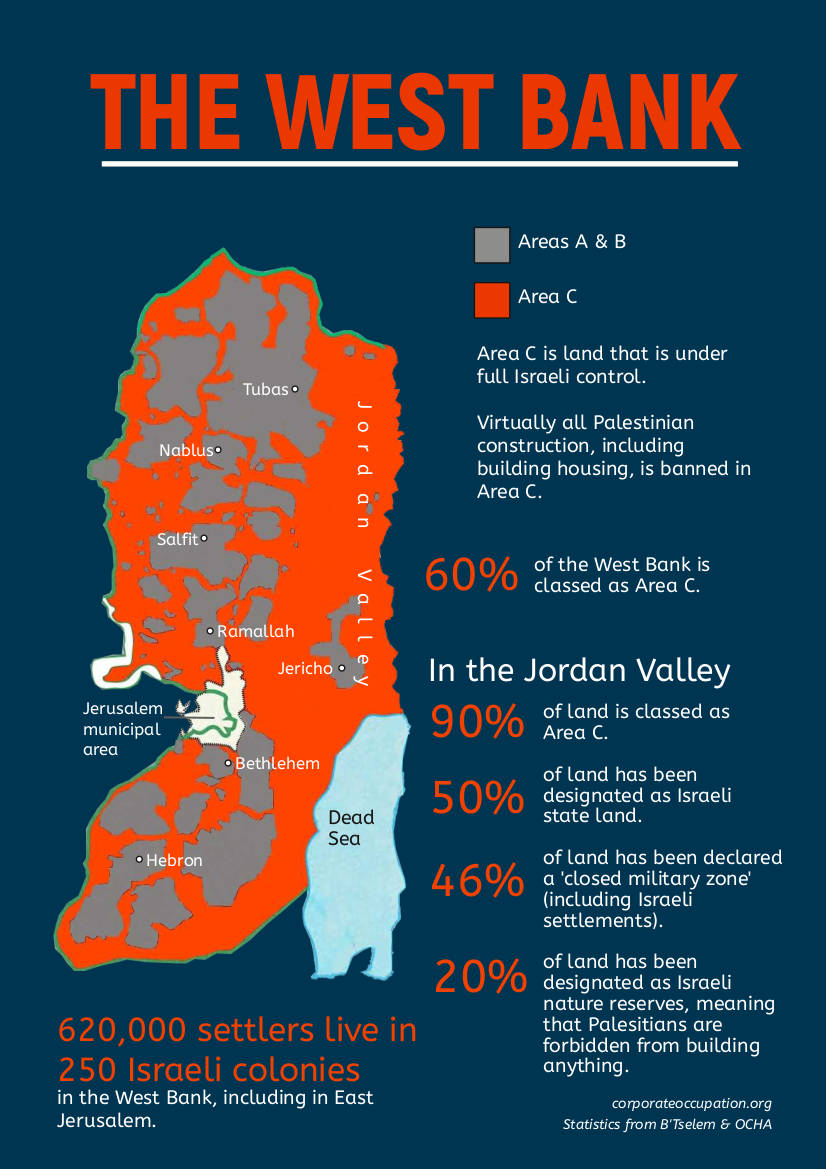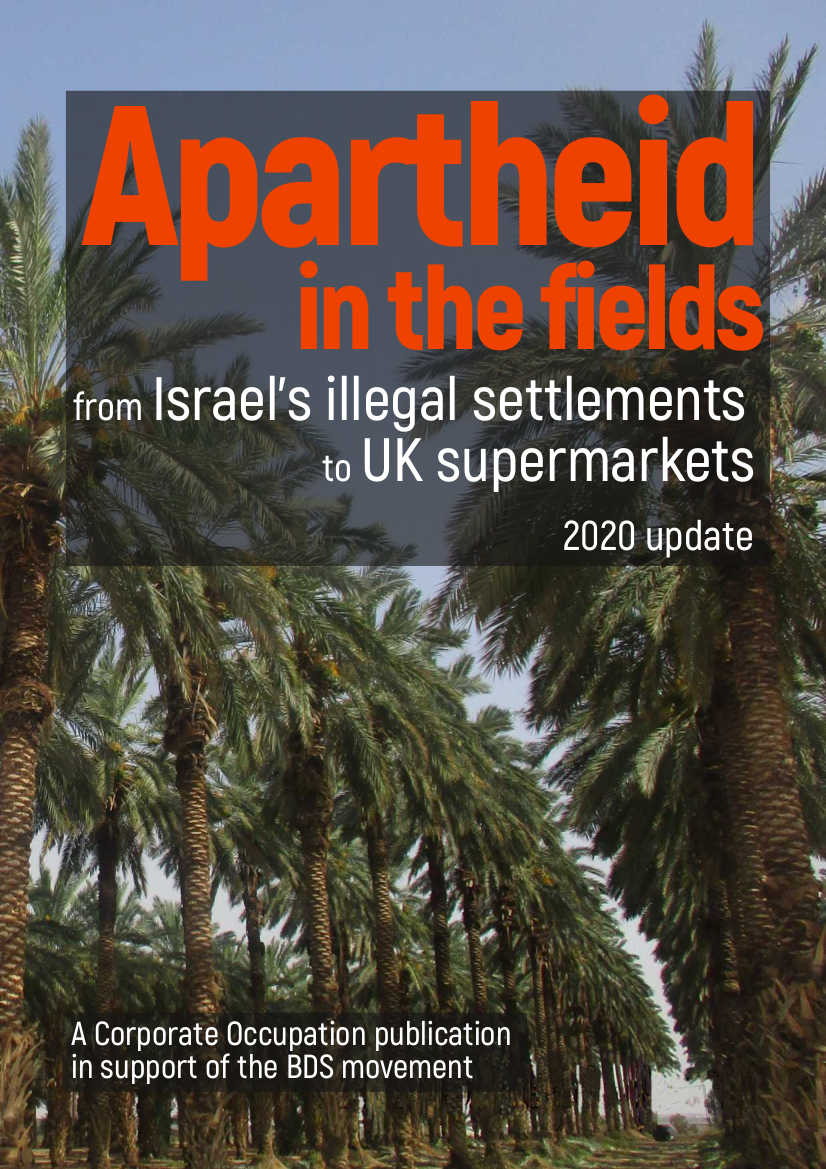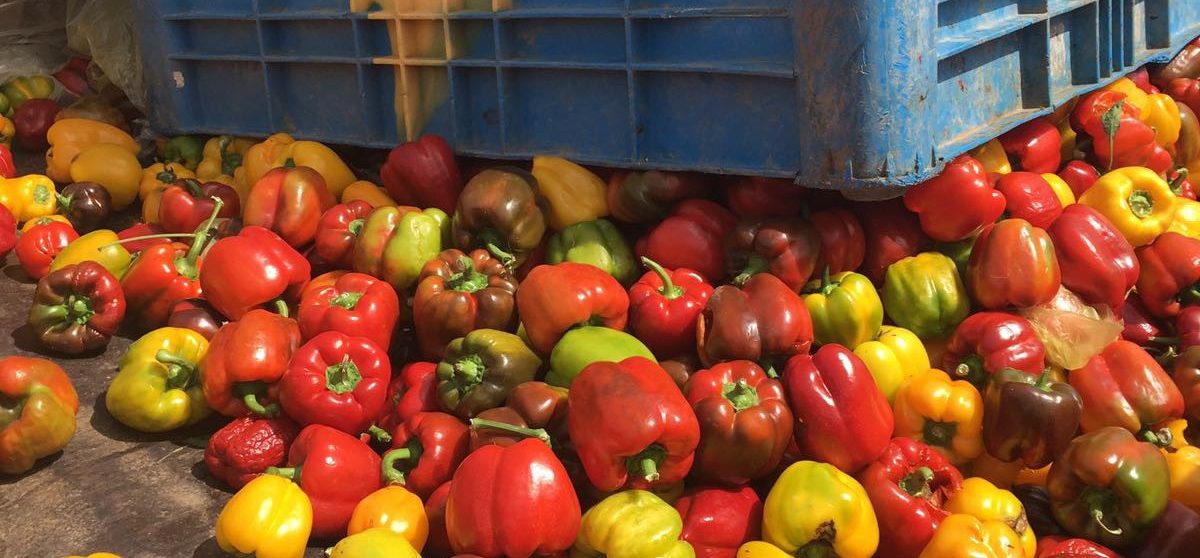Corporate Watch urges you to pressure the Sainsbury’s management to listen to the call from Palestinians living under Israeli occupation, to boycott Israeli goods and not to source goods from companies profiting from human rights abuses against Palestinians by operating in Israeli settlements.
ds and Israeli companies until the Israeli state’s crimes against Palestinians end. Since then the boycott movement has grown into a powerful global force, which has the capacity to seriously challenge the Israeli state’s attempts to dispossess the people of Palestine from their land.
In 2012 the Cooperative Supermarket became the first major UK retailer to announce that it would not trade with any company that operates in Israel’s illegal settlements.
In September 2013 Sainsbury’s confirmed to Corporate Watch that it sources its goods from several Israeli companies that operate in the settlements: Arava, Mehadrin and Edom.
We are calling on you to help us to convince Sainsbury’s to follow the Cooperative Group’s lead and to stop sourcing from these companies.
Working for poverty wages on land stolen from their families
Mehadrin source their produce from the Israeli settlement of Beqa’ot. One worker from Beqa’ot told Corporate Watch: “Before the occupation in 1967 Libqya [The Arabic name for the area where Beqa’ot is now situated] was owned by Palestinians who used it for planting crops and raising animals. All of the families around here owned land in Libqya.
“I remember when my mother passed Libqya when I was young she told us how she used to play there with her brothers and sisters. Our family owned 70 dunums of land there. This reality is too painful. When I was older I tried to reach the land my mother told me about. But a settler told me I was forbidden to go there.”
>Paid under the minimum wage <
These Israeli companies consistently underpay their workers. Palestinian workers in Israeli settlements have been entitled to the Israeli minimum wage since an Israeli Supreme Court ruling in 2007 (see here). The current hourly minimum wage is 23.12 NIS (New Israeli Shekels),the equivalent of 184.96 NIS for an eight hour working day, having risen from 20.70 NIS in 2009. However, for Palestinian workers on Israeli settlements in the Jordan Valley these conditions seem an impossible dream.
In 2010 and 2013 Corporate Watch conducted interviews with settlement workers showing that Palestinians are consistently paid as little as half the minimum wage. Many of our interviewees also reported that children under the age of 16 were employed on the settlements.
The table below outlines our 2013 findings:
| Name of settlement | Wages reportedly paid | Wages paid are below the minimum wage | Companies sourcing goods from the settlement | Child labour reported | Workers complained that they were not allowed to unionise |
| Beit Ha’arava | 65-70 New Israeli Shekels (NIS) | Yes | Arava, Edom | Yes | Yes |
| Beqa’ot | 82 NIS (minus 12 NIS deducted for transport) | Yes | Mehadrin Tnuport (MTEX), Carmel Agrexco, STM Agricultural Exports | Yes | |
| Na’ama | 65-80NIS | Yes | Viva, Carmel Agrexco | Yes | |
| Kalia | Yes | Carmel Agrexco | |||
| Tomer | 70 NIS | Yes | Edom, Hadiklaim, Agrexco | Yes | Yes |
| Massua | 80 NIS | Yes | Mehadrin Tnuport (Mtex) | Yes | |
| Vered Yeriho | 70 NIS | Yes | Carmel Agrexco | Yes | |
| Argaman | 60 NIS | Yes | Carmel Agrexco, Ada | Yes |
Arava, Edom and Mehadrin source their products from many of the above settlements. In doing so they are helping to sustain the settlement economy.
Palestinian workers’ views of the companies working in the settlements
Corporate Watch asked the Palestinian workers on Israeli settlements we met about their opinion of the companies working there. The quotes below are illustrative of their views:
“It is important for you to tell people that these settlements are illegal and that we don’t have any choice except to work for them… I think it’s important to boycott Israeli products as the settlements are stealing our land and stealing our water. [If the companies in Tomer were to close down it would be] like a dream, inshallah [God willing], it’s freedom for the Palestinian people.”
Mohammed, worker in Tomer
“When the settlement economy is destroyed the settlers will leave. They are only here for business.”
Fadi, worker at Beit Ha’arava
“They are working on stolen land, using water that they have stolen from us. If the boycott campaign damages these companies then the settlers will leave our land.”
Fares, worker at Beit Ha’arava
“We support the boycott even if we lose our work. We might lose our jobs but we will get back our land. We will be able to work without being treated as slaves.”
Zaid, worker at Beqa’ot
The case of Sodastream
Sainsbury’s stocks Sodastream products for making fizzy drinks at home. Sodastream has its main manufacturing facility in the Israeli settlement industrial area of Mishor Adumim. Mishor Adumim was established on land previously occupied by Palestinian Bedouin. The Bedouin occupants were forcibly evicted and forced to settle in an area close to the Jerusalem Municipal rubbish dump.
In 2013 Corporate Watch interviewed several people from this community. Here is what one of them said about Sodastream:
“We are not allowed to go near them [the factories]. They took our livelihood to build them and we got evacuated for them to build their factories. After they built them there were no resources to live from for us. The gains are nothing compared to what was lost. They destroyed our lives and then gave a few people a job. It is nothing”.
Sainsbury’s – stop sourcing from occupation profiteers
It is not enough for Sainsbury’s to claim that they do not source goods from Israeli settlements in the Occupied Palestinian Territories, they should cease sourcing from companies that are profiting from the seizure of Palestinian land and a captive workforce living under occupation.
By sourcing products from Arava, Mehadrin, Sodastream and Edom, Sainsbury’s is supporting the settler economy and acting against the wishes of the Palestinian people. We are calling on Sainsbury’s to follow the lead of the Cooperative Supermarket and refuse to buy products from these companies.
This letter has been sent to Sainsbury’s head office.



0 Comments